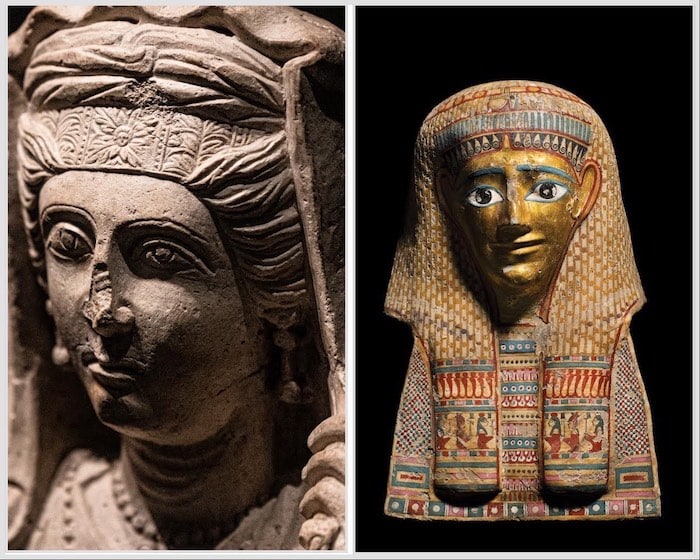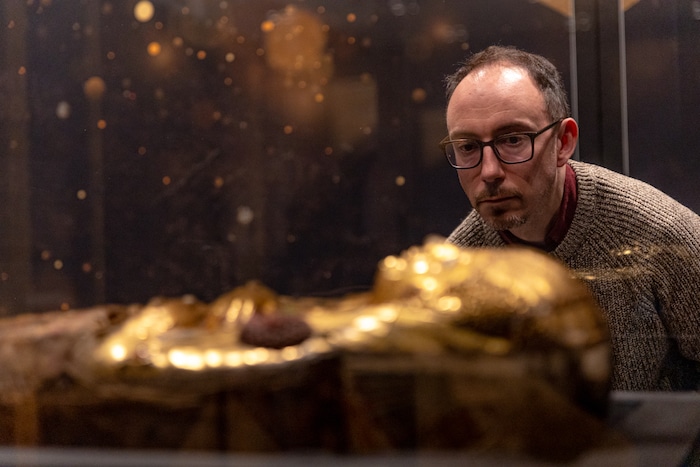The Guardian names Manchester Museum exhibition as one of UK's must-sees for 2023
- By Thom Bamford
- Updated 1 day ago
- Published 2 January 2023

The Guardian has named the Golden Mummies of Egypt exhibition as one of the most exciting for 2023.
The exhibition will offer a rich perspective on Egyptian mummies and Western approaches to them when it reopens on 18 February 2023, following its ambitious £15 million transformation.
And the big transformation is generating headlines world wide, getting a shout from Lonely Planet last November as another great reason to visit the city.
The Museum have promised it wont just be about the gold and grandeur of the Egyptians.
The project will use non-intrusive science to explore mummified bodies and their intricate wrappings, showing how preserving the dead was part of the Egyptians passionate belief in the life beyond.
The exhibition has enjoyed a hugely successful tour across the USA and China, with nearly half a million visitors revelling in the glory of Ancient Egypt.
It is set to feature eight golden mummies and 100 other spectacular objects in their new Exhibition Hall, offering visitors unparalleled access to the Museum's world-leading Egyptology collections, recognised as one of the most significant in the UK.
New research, pioneered and undertaken by Manchester Museum's Curator of Egypt and Sudan, Dr Campbell Price, offers new reading of the Museum's Egyptian collection through a contemporary lens.
The project is looking to debunk Victorian notions of Ancient Egypt and lift the veil of mystery surrounding an often misunderstood period.
It will explain the wide misconception of the reason for mummification, as it solely being a a representation of preservation after death.
Manchester Museum's Curator of Egypt and Sudan, Dr Campbell Price suggests that this process is one of transforming the body into the divine, turning established Victorian notions that have pervaded Western history, on its head.

The exhibition recognises that all of the processes – purification, anointing, wrapping – were a sacred and secret art. In line with this, no CT scans or facial recognition will appear as part of the exhibition.
They also discuss the prejudices and bias around the archaeological diary entries at the time, presenting how the priorities and documentation of their work are all driven by the Victorian period and its values around race, gender, society, status, hierarchy and death.
Golden Mummies of Egypt is the Museum's first-ever international touring exhibition and will offer visitors unparalleled access to the Museum's world-leading Egyptology collections, recognised as one of the most significant in the UK.
Manchester Museum has a particularly strong collection from the Graeco-Roman period, excavated in the 19th century by Egyptian teams directed by Victorian archaeologist William Matthew Flinders Petrie. The excavated objects, which originate from an important sacred area known as Hawara, offer important insights into a multicultural Egyptian society; one that was never as isolated as often portrayed and taught.
Speaking to I Love MCR, Dr Campbell Price, Curator of Egypt and Sudan at Manchester Museum, said: "Originally these extraordinary objects were considered within the Victorian context in which they came to the Museum.
"Our exhibition aims to highlight how this history has informed pervading modern interpretations of life and death during an era when Egypt was part of the Greek and Roman worlds."
Other star objects include the so-called 'Faiyum Portraits'; their discovery in the 1880s changed previous conceptions about the development of art. The painted mummy panels from the Roman Period covered the deceased to provide an 'eternal face' for the afterlife. Said to have inspired beloved Irish poet and playwright, Oscar Wilde, to write The Picture of Dorian Gray. These panels are amongst the most striking images from the ancient world. Terracotta figurines of gods present the worship of a wide variety of deities in peoples' homes, whilst written accounts from archeologists of the time highlight the influence of Victorian values surrounding race, gender, hierarchy and death, on the documentation processes of their work.
Golden Mummies of Egypt, developed and produced with Nomad Exhibitions, will be open at Manchester Museum from 18 February 2023 for at least six-months. Entry is free but booking tickets is recommended.
-- Sent from my Linux system.
No comments:
Post a Comment